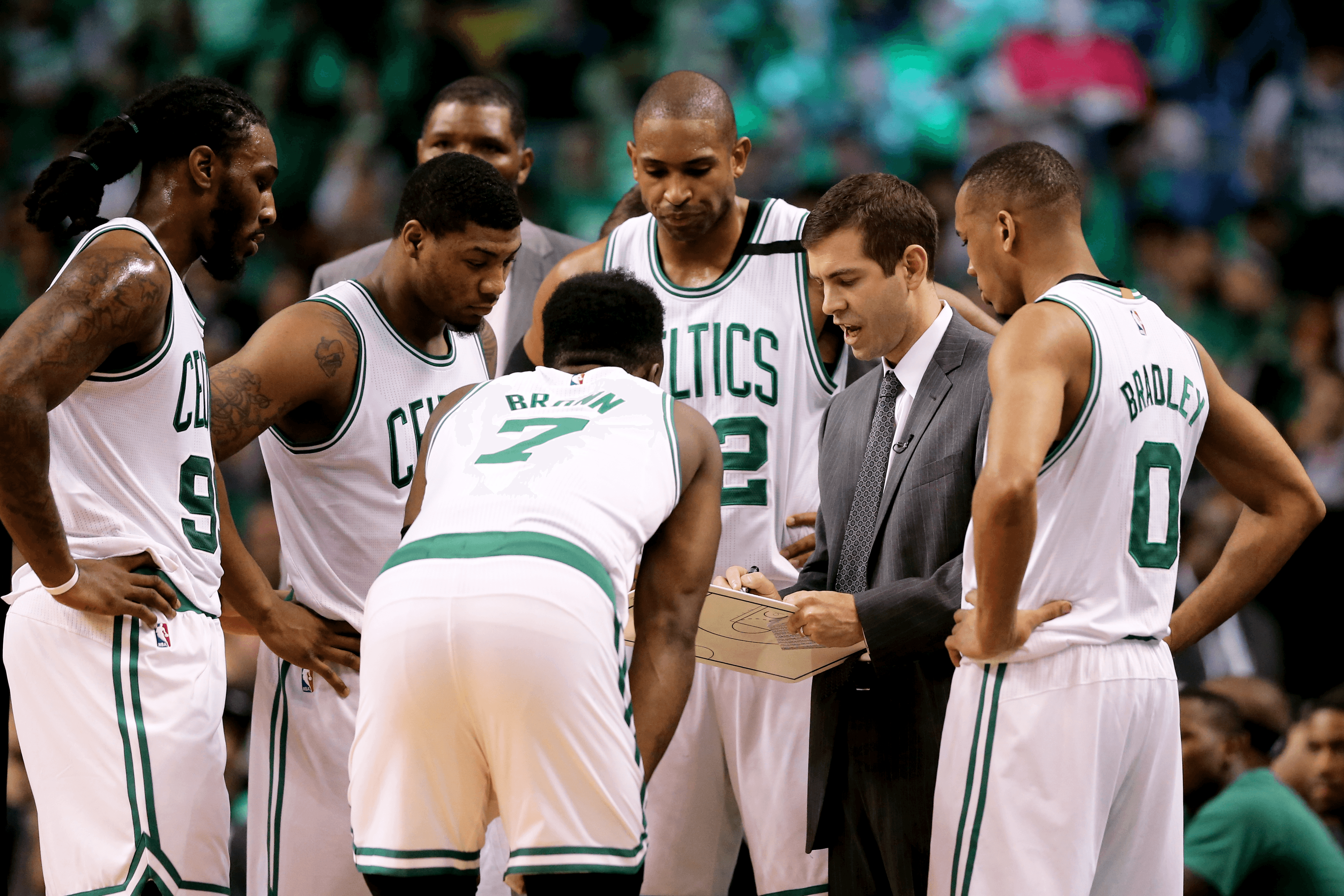
The Boston Celtics may or may not be the worst 1-seed in playoff history. They are certainly among the least respected I can remember. Some of that comes with the Eastern Conference territory — if you’re the 1-seed in LeBron James’s neighborhood, trust that you’re just keeping it warm for him. But Boston hasn’t covered itself in glory since the postseason began, and that’s not anyone’s fault — not the media’s, not Draymond Green’s — but its own.
The Celtics haven’t even been able to use disrespect to their advantage. There’s been no “nobody believes in us” talk. There’s been no time to be an underdog. The Celtics needed six games to beat a Chicago team that we’re still not totally sure wanted to be in the playoffs, and against the Wizards, they’ve looked good only at home. Lucky for them, the Wizards have looked good only at home, too. So here we are.
Boston wasn’t an overrated 1-seed, or an underrated Cleveland competitor. They were the accidental alphas of a conference that didn’t belong to them. Isaiah Thomas has been a one-man third act of a sports movie, but beyond that they’ve done little in the playoffs to change the conventional wisdom and put themselves in the contender conversation.
Until Wednesday night. If only for one game, the Celtics played like they’d like to have a word with us all. They looked like a 1-seed. The Celtics got on the Wizards early, and then held them at bay without a ton of effort, winning 123–101, and taking a 3–2 lead in the second-round series.
The reason Boston dressed for the job it wanted was that its best players played their best. Isaiah Thomas had a quiet (for him) 18 points and nine assists, but it was his much-maligned wingmen Al Horford and Avery Bradley who took the C’s to previously unreached levels of dominance.
Horford looked like a $113 million man. On Tuesday, The Ringer’s Kevin O’Connor wrote about Horford’s ability to make an impact that traditional stats can’t properly quantify, but his value to the team has been palpable to anyone with a passing understanding of the sport. He was the field general of the Boston defense, shot 3-for-4 from 3, scored 19, grabbed six boards, and dealt seven assists, at times running the Boston offense as a point center.
Wizards center Marcin Gortat was aggrieved enough by his limited playing time to RT this dude:
But honestly, Wiz coach Scott Brooks might have been saving him from getting shame-belled by Horford out on the perimeter all night. RT that, Polish Hammer.
For his part, Bradley had a Star Wars teaser trailer of a game: If he were able to regularly put together the kind of two-way performance he had on Wednesday, Boston would have a blockbuster on its hands. Bradley is already one of the best wing defenders in the game, and against the Wiz he garnished his usual stinginess with 29 points of his own, 25 of which came in the first half.
This is a make-or-miss league, and this has been a make-or-miss postseason. Sometimes maddeningly so. The reliance on 3-pointers by the remaining teams (Golden State, Boston, Cleveland, and Houston comprised four of the five most 3-point-happy squads in the league this season) means that every night is a long-range lottery. If a team’s 3s go down, it wins; if not, it loses.
Boston — second in 3-point attempts during the postseason — is a make-or-miss team. When the Celtics are draining shots and getting contributions from across their starting lineup like they did in Game 5, you can imagine them taking Cleveland deep into a series. They have a good home crowd, a good coach, and a deep bench (though why their good coach is still going so deep into that deep bench at this point in the year is beyond me, and sometimes beyond Isaiah).
The real test comes on Friday night back in Washington, D.C., where an eternal flame of sports hope burns (sorry, Caps fans). If Boston wants to be taken seriously, it has to play the way Cleveland did in Toronto, and the way Golden State did in Utah. Do that, and the Celtics will go a long way toward earning their seeding.

